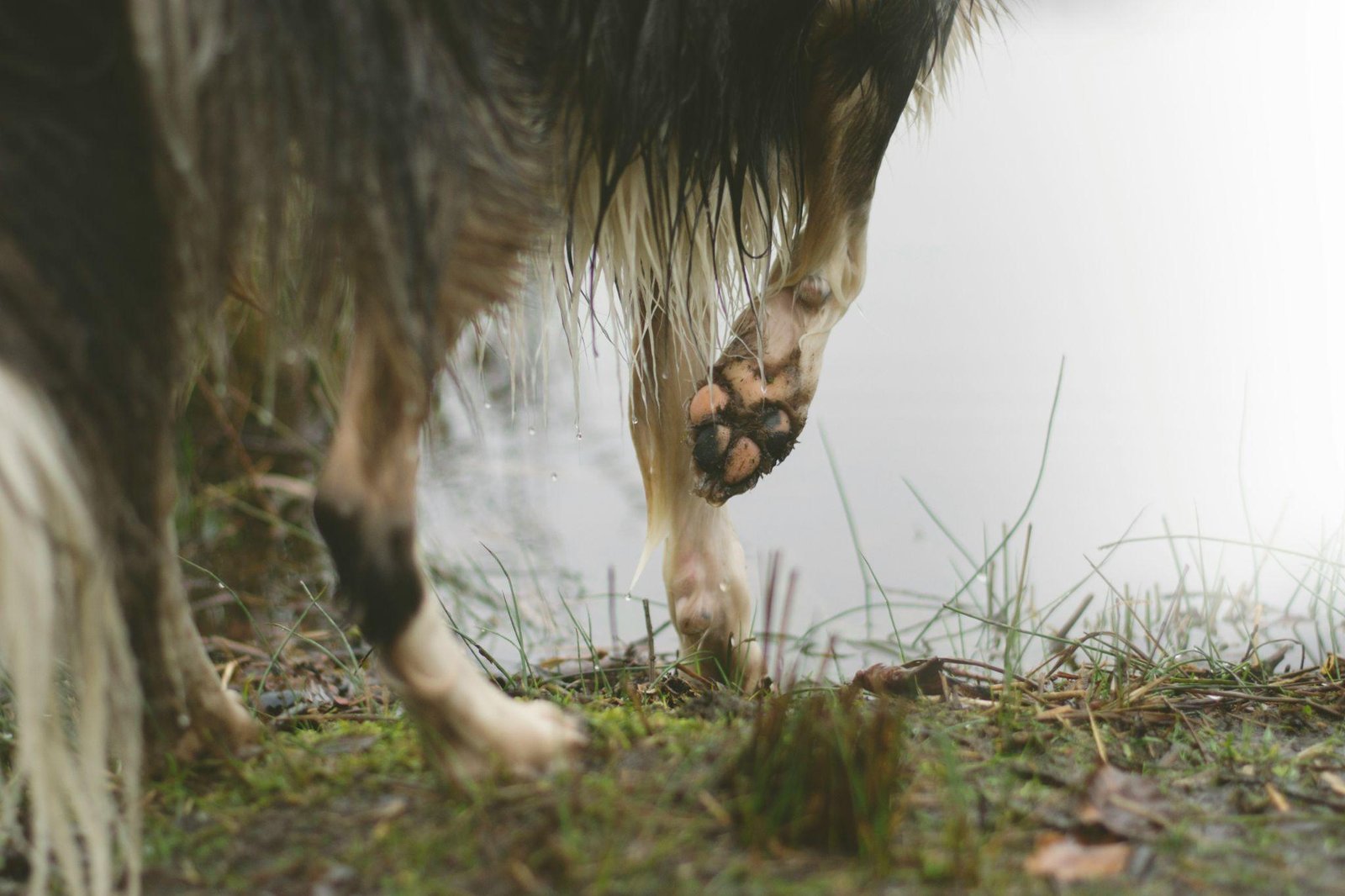
Scooting is a quirky, often puzzling behaviour where dogs drag their bottoms across the floor. This unusual act, though sometimes amusing, often signals discomfort or irritation. What might seem like a simple itch may also indicate something deeper, potentially impacting your dog’s well-being. For many dogs, scooting serves as a kind of message that something beneath the surface needs attention.
In this article, we’ll dive into the common causes of scooting, from minor irritants to serious health concerns. Knowing why scooting happens equips dog owners with the knowledge to make sure their dog stays healthy and comfortable. We’ll also cover when a vet’s guidance is essential and some practical tips for keeping scooting at bay.
Common Reasons for Scooting
Scooting stems from various triggers, each calling for specific responses. Pinpointing the cause allows pet owners to take appropriate steps to soothe their pet’s discomfort.
Anal Gland Issues
Anal gland troubles rank among the top causes of scooting. Dogs carry two small scent glands close to their anus, meant to release a distinctive scent during defecation. Normally, these glands empty on their own, but they may become blocked or too full, causing intense pressure and discomfort. Dogs then resort to scooting, hoping to ease the sensation or instinctively trying to empty the glands themselves.
When left unchecked, full or impacted glands not only irritate but can also become infected, creating painful abscesses. Persistent scooting, often accompanied by a strong odour or signs of distress, usually calls for a vet visit. A professional can assess and drain the glands, relieving the discomfort and preventing serious complications.
Parasites (e.g., Worms)
Parasites, especially worms like tapeworms, are another common cause behind scooting. Tapeworm segments resemble small grains of rice, often clinging to the dog’s anus and causing itchiness. When these pesky segments pass, they prompt scooting as the dog tries to rid itself of the irritation. Other intestinal parasites can cause similar effects, leading to itching and dragging.
Regular deworming fends off parasites, keeping the likelihood of scooting at bay. Noticing small, rice-like grains near your dog’s bedding or tail hints at a possible infestation. If left untreated, these parasites not only irritate but can also harm your dog’s health, requiring medical treatment to clear them out fully.
Allergies
Allergies bring on itching and discomfort, often resulting in scooting. Dog breeds prone to allergies such as Bichon Frise may develop allergies to certain foods, pollen, grasses, or even dust. When an allergy flares, it triggers itchiness or inflammation that may extend to the area around the anus. In response, dogs scoot as a way to ease the irritation.
Identifying the source of an allergy takes patience and often involves experimenting with different foods or household adjustments. Sometimes, vets may recommend specific allergy tests to pinpoint triggers. Addressing these allergens helps dogs feel more comfortable and prevents scooting due to allergic reactions.
Skin Irritation or Infection
Skin conditions like dermatitis or fungal infections frequently contribute to scooting. Infections around the anus cause inflammation, prompting dogs to scoot to relieve the itch. Dermatitis, an inflammation of the skin, may arise from certain irritants which are common to long hairbreeds like Spoodles, Lhasa Apso, and Briard. Injuries or small cuts around this sensitive area can further aggravate the irritation, causing more scooting.
Regular cleaning and grooming reduce the risk of infection. If your dog’s scooting continues, or if you notice redness, swelling, or discharge, a vet can help address the underlying condition.
When to Consult a Vet
While some scooting can be managed at home, certain signs suggest it’s time to consult a vet. Persistent scooting, especially when coupled with visible discomfort or irritation, can signal deeper issues. If your dog’s bottom appears red, swollen, or shows signs of discharge, a veterinary visit becomes essential.
Anal gland issues, if neglected, can lead to infection or abscesses, which may require more involved treatment. Parasites, too, if left untreated, can impact your dog’s digestive health and may even spread to other pets or humans in the household. Persistent scooting, particularly when paired with other signs of discomfort, should not be dismissed, as it could point to an escalating health problem.
A vet can thoroughly examine the area, identify the source of irritation, and take necessary action. They may drain the anal glands if needed, prescribe treatments for infections, or suggest parasite control if worms are to blame. Early intervention by a vet helps prevent further complications, ensuring your dog’s comfort and well-being.
Home Care and Prevention
Several steps can help reduce or prevent scooting in dogs. Consistent care, regular grooming, and close attention to cleanliness go a long way in keeping your dog comfortable.
Grooming and Hygiene
Keeping the area around the hindquarters clean and well-groomed reduces the risk of irritation and infection. Bathing your dog with a gentle pet shampoo keeps the area free from irritants. Dogs with longer hair, in particular, benefit from regular trims near the anus, as matted fur can trap dirt or faecal matter, which leads to scooting.
Parasite Prevention
Deworming your dog regularly is essential, especially if they spend time outdoors where they might encounter worms. Deworming treatments come in various forms, such as tablets, topical applications, or injections, and a vet can recommend the best option. Sticking to a deworming schedule helps keep parasites away, reducing the chances of scooting due to itching.
Managing Allergies
If allergies contribute to scooting, removing potential triggers from your dog’s environment can make a marked difference. Switching to hypoallergenic dog food may help alleviate symptoms for dogs with dietary sensitivities. Maintaining a clean home and using air purifiers can also reduce common allergens like dust or pollen. If you notice scooting along with signs of itching during specific seasons, allergy management may provide relief.
Anal Gland Expression
Some pet owners prefer to have their vet or groomer check and express their dog’s anal glands routinely, especially if their dog has a history of gland issues. Regular expression prevents glands from becoming overly full, reducing discomfort. However, not all dogs require this procedure frequently, so consulting a vet before beginning any routine expression is wise.
Conclusion
Scooting, while often harmless, can reveal much about your dog’s comfort and health. Watching for signs of persistent scooting, irritation, or any visible discomfort allows you to respond appropriately. In some cases, simple hygiene and preventive measures can address the issue. However, if scooting becomes frequent or involves visible distress, consulting a veterinarian provides the best course of action.





